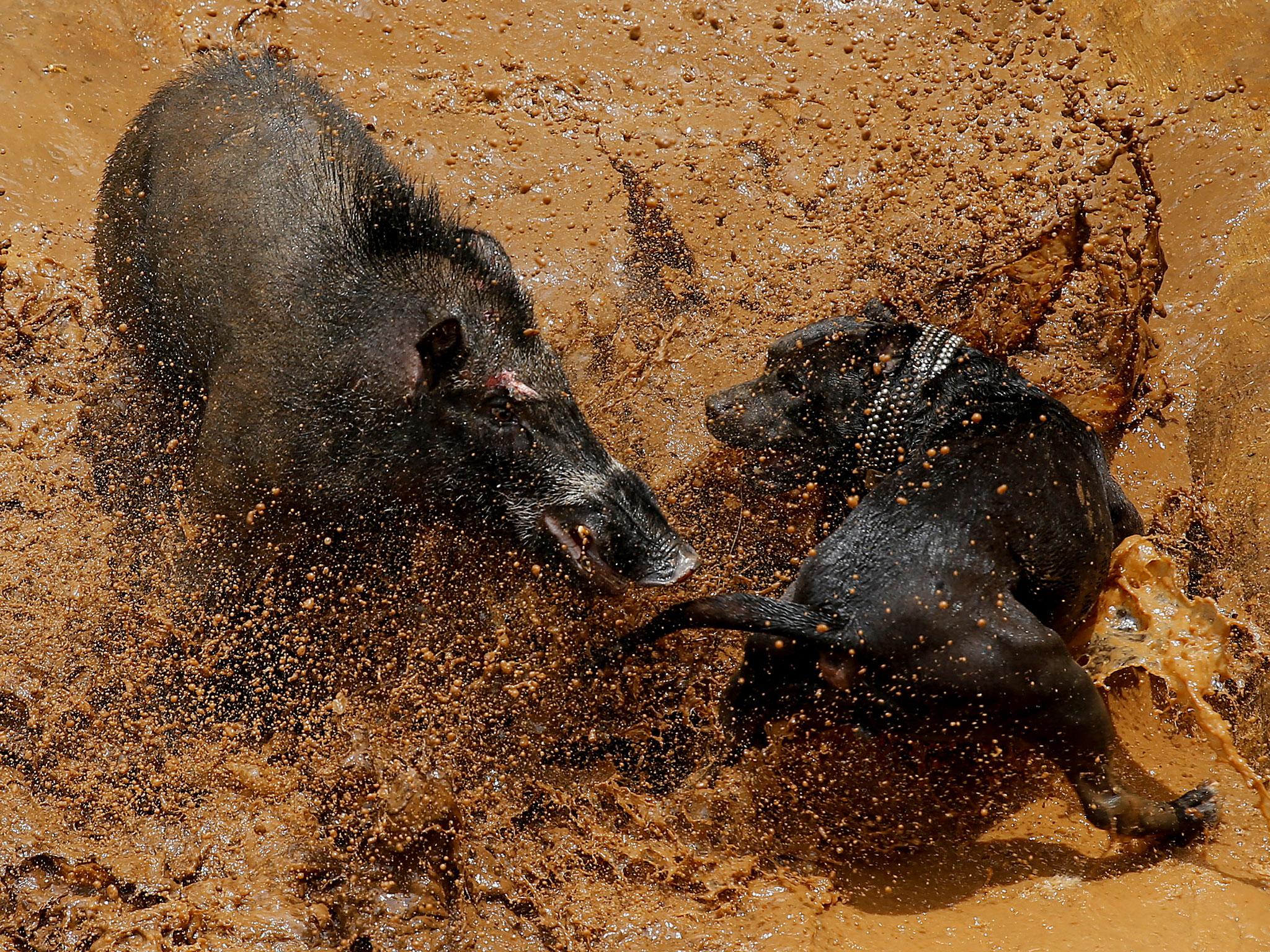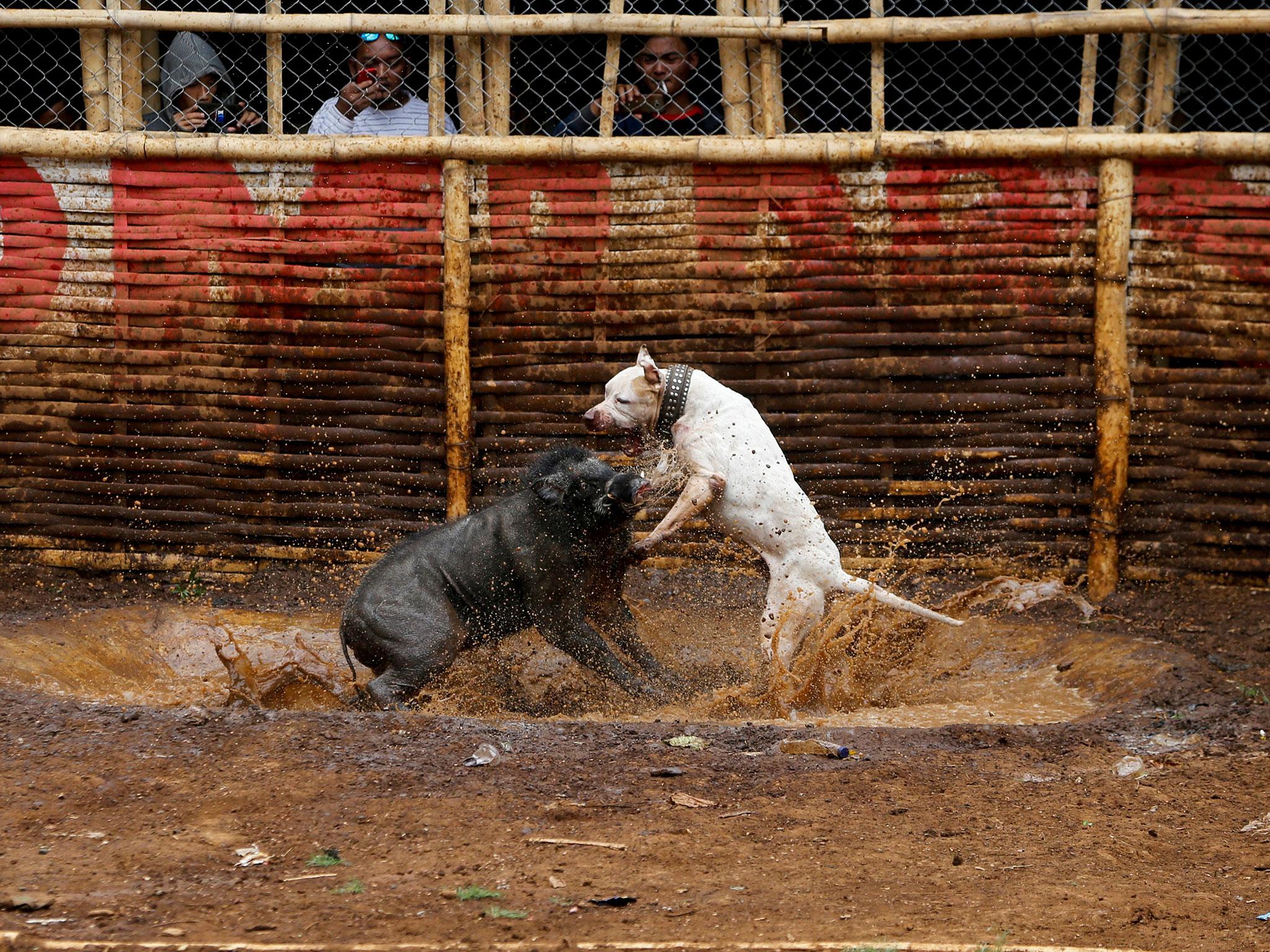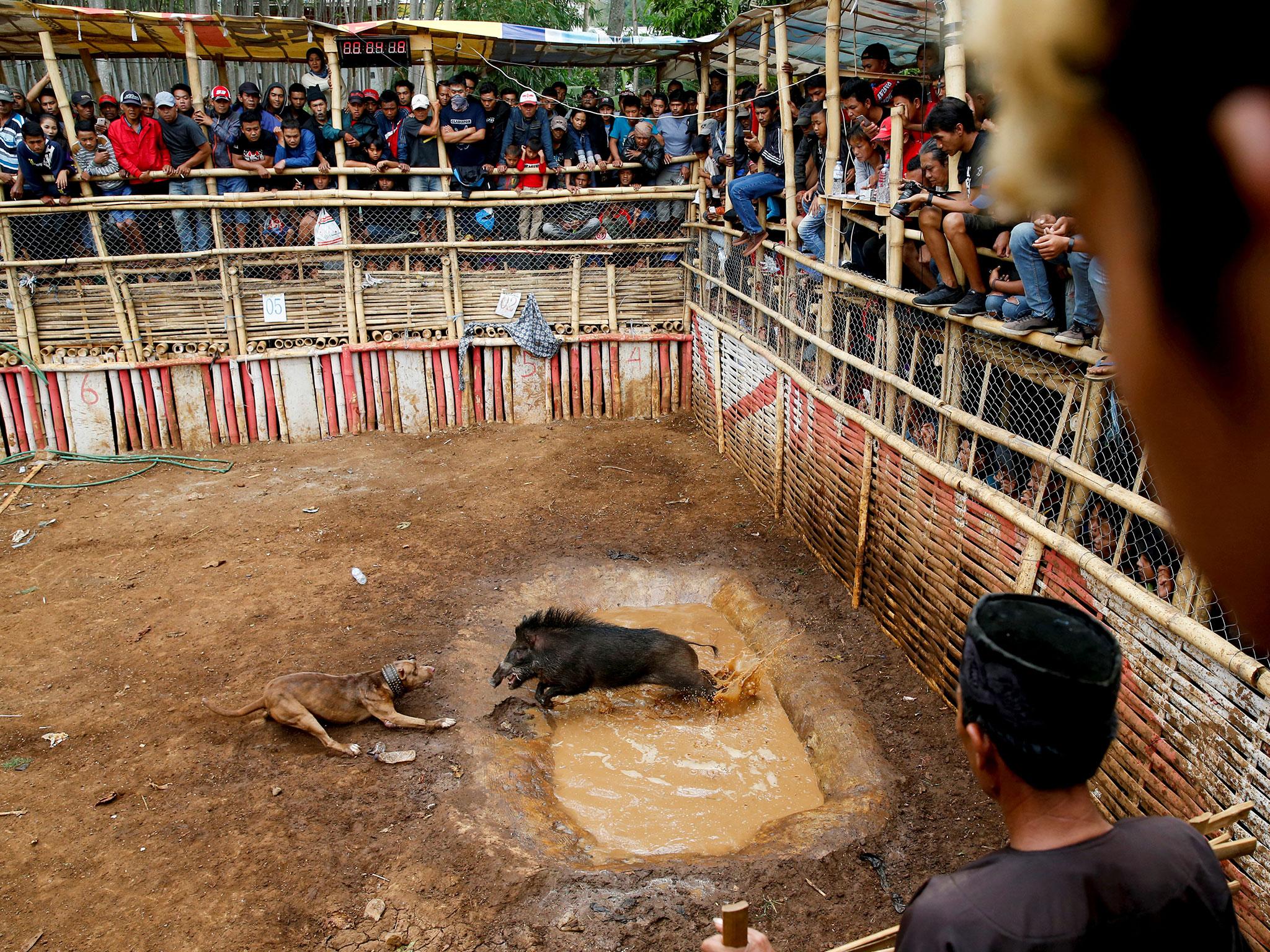Dog vs wild boar fights in Indonesia prompt calls to end 'traditional' sport
'Not only is it extreme animal cruelty, but it debases us as humans to promote such barbarity as fun'

Your support helps us to tell the story
From reproductive rights to climate change to Big Tech, The Independent is on the ground when the story is developing. Whether it's investigating the financials of Elon Musk's pro-Trump PAC or producing our latest documentary, 'The A Word', which shines a light on the American women fighting for reproductive rights, we know how important it is to parse out the facts from the messaging.
At such a critical moment in US history, we need reporters on the ground. Your donation allows us to keep sending journalists to speak to both sides of the story.
The Independent is trusted by Americans across the entire political spectrum. And unlike many other quality news outlets, we choose not to lock Americans out of our reporting and analysis with paywalls. We believe quality journalism should be available to everyone, paid for by those who can afford it.
Your support makes all the difference.Animal rights activists have called for the end of staged fights between dogs and captured wild boars in rural Indonesia.
Locals gather around a bamboo-walled arena in a remote part of Java island to watch the blood-curdling contests, which are known locally as "abu bagong" (boar fighting).
"The vicious and exploitative fighting of dogs and wild boars in Indonesia is a disturbing spectacle that must be condemned," Wendy Higgins, a spokesperson for Humane Society International told The Independent.
"Watching animals savagely fight each other must never be considered entertainment, nor excused as culture."
She added: "Not only is it extreme animal cruelty, but it debases us as humans to promote such barbarity as fun. Any tradition that requires a sentient being to become a victim of violence should be consigned to the history books."

The fights take place within a 15-30 metre arena and end only when when one of the animals is injured.
Participants say the contests test the agility and hunting abilities of the dogs. There is also a cash prize of up to $2,000 (£1,500) for the winning dog.
If a boar survives the fight, it will return to the arena once healed. If not, it will be butchered and sold for meat.

Participants told Reuters the fights were a way to preserve a tradition of hunting in the area.
"It used to be very simple, not like now when the dogs are trained," said Nur Hadi, head of Hiparu, a group of hunting dog enthusiasts that takes part in the fights.
"From there it's been handed down and has even become part of tradition and culture," Mr Hadi said.
Dog breeder Agus Badud said the tradition also gives people a source of income.
"I take part in this contest to increase the selling price and economic value of my dogs, and it would be useless for me as a breeder if I did not participate in a contest like this," Mr Badud told Reuters.
The regular spectacle began in the 1960s, when wild pig numbers in West Java soared and they were hunted to protect crops.
Subscribe to Independent Premium to bookmark this article
Want to bookmark your favourite articles and stories to read or reference later? Start your Independent Premium subscription today.
Join our commenting forum
Join thought-provoking conversations, follow other Independent readers and see their replies
Comments